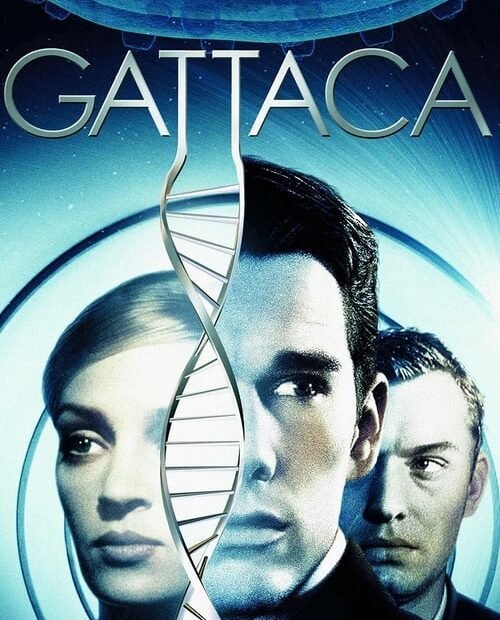Gattaca: The Genetic Lottery That’s Not Quite a Win
Welcome to a future where your DNA is your résumé, and if you weren’t cooked up in a lab, well, you might as well be a houseplant. In Gattaca, the world is divided into the genetically elite and the “invalids,” who, in a delightful twist of fate, are the protagonists of this dystopian dramedy.
Meet Vincent Freeman, a man born the old-fashioned way (you know, the fun way), who dreams of traveling to the stars but is stuck on Earth because he’s labeled an “invalid”—a genetic oopsie. Instead of a shiny pedigree, he’s got a heart of gold and a penchant for deception that would make even the most seasoned con artist proud. Armed with nothing but ambition and a penchant for borrowing someone else’s identity, Vincent decides to take on the world of space travel. Because who needs a flawless genome when you have a can-do attitude?
Vincent’s grand plan involves stealing the identity of his genetically superior counterpart, Jerome Eugene Morrow, who, ironically, is a wheelchair-bound former Olympic swimmer. Jerome’s DNA is so pristine that even his hair follicles are probably in a gold-plated frame. But alas, the poor guy is stuck in a rut of his own making—literally. He spends his days contemplating the meaning of life while Vincent gets to play the role of the perfect human specimen. Talk about a role reversal!
As Vincent navigates the corporate world of Gattaca, he’s constantly dodging the Genetic Purity Police like a contestant on a twisted game show. His biggest concern? A murder investigation that threatens to unravel his carefully constructed facade. Because nothing says “I’m a model citizen” quite like having a body double who’s a prime suspect in a homicide case!
Enter Irene Cassini, the beautiful co-worker who has no idea that Vincent is a genetic faux pas. Their romance blossoms amidst the backdrop of a world where love is as calculated as your chances of getting a cold. It’s a classic tale of “Will he, won’t he?”—except it’s more like “Will he, won’t he get caught for being biologically inferior?”
As the plot thickens, we’re treated to a series of scenes that highlight the absurdity of a society obsessed with genetic perfection. The irony is thick enough to slice: people are judged not by their actions but by the whims of their DNA. Who knew that being born with a few extra chromosomes would put you at a disadvantage in a race to the stars?
In the end, Vincent’s journey is less about the stars and more about the lengths one will go to prove that heart and determination can trump genetics. He successfully completes his mission, leaving behind a trail of genetic elitism and a few dead bodies, but at what cost? The film closes with a message that’s both poignant and ironic: sometimes, it takes a “flawed” human to show the world that perfection is overrated.
So, if you’re in the mood for a film that serves up a side of existential dread with a sprinkle of genetic irony, Gattaca is your ticket to a future where the only thing more flawed than our DNA is our understanding of what it means to be human. Grab your lab coat and prepare for a ride through a society where being a little imperfect might just be the best thing you can be!
